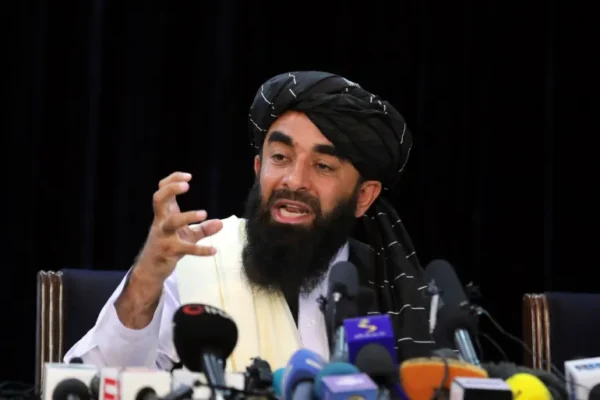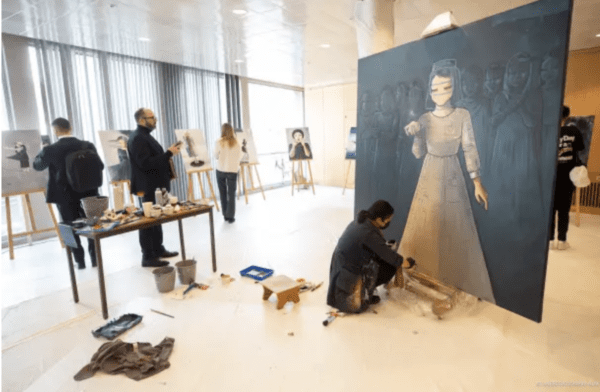On March 8th, International Women’s Day, the UN called once more on the Taliban to lift their restrictive bans on women’s rights.
The Taliban also shared a message on March 8th without acknowledging the day’s significance on social media platform X. Chief spokesman of the Taliban, Zabihullah Mujahid, shared on his official account that “the dignity, honor, and legal rights of women were a priority for the Islamic emirate,” the term describing the Taliban’s government.

Taliban spokesman Zabihullah Mujahid at the first news conference following the regime’s return to power in August 2021. Source: AP Photo
In the five years since the United States’ withdrawal from Afghanistan, women’s rights have been increasingly restricted. The peace agreement negotiated before the withdrawal in 2021 between the US, local officials, and the Taliban was forged in a considerably exclusionary process. Afghan women and their rights were not prioritized, which made a return to the Taliban’s oppressive regime targeting women a path of little resistance.
Although the Taliban made initial commitments to uphold human rights, they were quick to contradict their promises. After regaining power, the Taliban disassembled the ministry that promoted women’s rights, prohibited political freedom, the right to work (except for teachers and nurses), and education for girls past the age of 12. All the while defending their treatment of women as being “in accordance with Islamic law and the culture and traditions of Afghan society” and that “the fundamental rights of Afghan women have been secured.”
Today, despite consistent condemnations by the UN and the international community at large, little to no action to prevent the Taliban’s increasing deprivations of women’s rights has been taken. Women are almost entirely confined to the walls of their homes and may no longer be in public without a male chaperone, nor show their faces or speak in public spaces. The supreme leader has even banned windows in residential buildings that overlook areas used by women in new construction and ordered them to be covered up in existing homes to prevent “obscene acts.”

An Afghan woman walks past a salon in Kabul. Beauty salons in Afghanistan were forced to close last summer and were one of women’s last public meeting spots. Source: Mohammed Ismail/Reuters
The situation for all Afghans has worsened under the Taliban’s regime, which has caused humanitarian, political, social, and economic disasters, although women and girls are disproportionately affected. A crisis caused by a multitude of factors, including international sanctions due to the Taliban’s violations of human rights and natural disasters in the country, is a major cause. At present, close to 24 million Afghans—over half the population—are in need of humanitarian assistance and protection. The state of Afghanistan is described as a gender apartheid by the UN Special Rapporteur, which should be considered a crime against humanity and an attack on the entire population of Afghanistan.

Artwork displayed at the UNESCO conference for women’s rights in Afghanistan, which took place on International Women’s Day. Source: UNESCO/Christelle Alix
To ensure the voices of Afghan women continue to be heard, UNESCO hosted an international conference for female journalists, artists, and musicians to demand the unconditional restoration of the right to education for the women and girls of Afghanistan. The conference, hosted on International Women’s Day, seeks to keep the plight of Afghan women in the global consciousness and reminds the world that “Afghan girls and women are not weak.” The spirit of the conference is summed up by one girl’s message for the Taliban: “It is true that you have closed the gates of schools and universities, but you can never close our minds.”
Featured image: The image taken May 23, 2023, depicts Afghan women waiting to receive food rations from a humanitarian aid group in Kabul. Source: AP Photo/Ebrahim Noroozi






